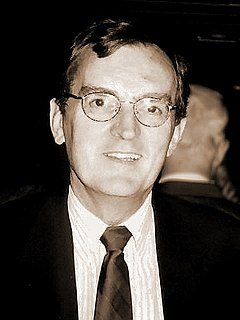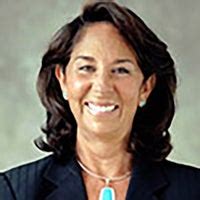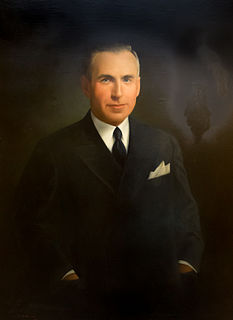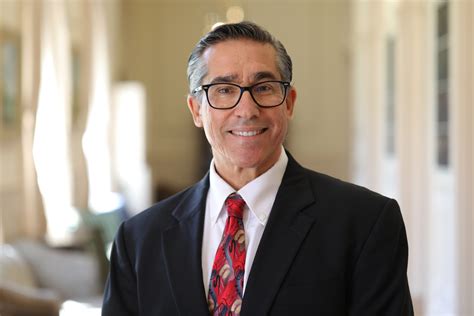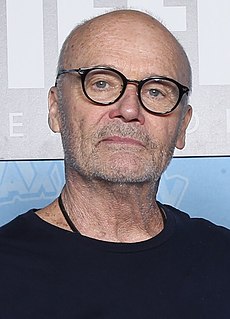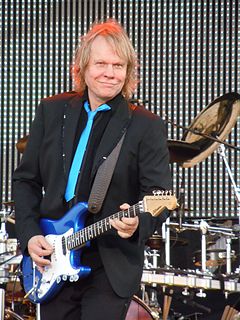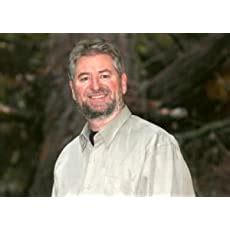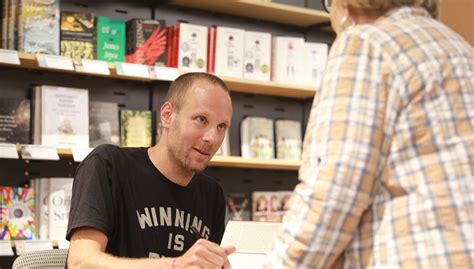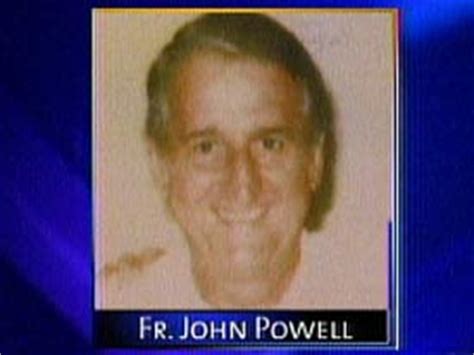Top 513 Insights Quotes & Sayings - Page 9
Explore popular Insights quotes.
Last updated on November 12, 2024.
The more authentic you become, the more genuine in your expression, particularly regarding personal experiences and even self-doubts, the more people can relate to your expression and the safer it makes them feel to express themselves. That expression, in turn, feeds on the other person's spirit, and genuine creative empathy takes place, producing new insights and learnings and a sense of excitement and adventure that keeps the process going.
The ability to help others gain insights seems very important to me, and I think one of the most effective, but most difficult, ways is to listen sympathetically when people seem to be saying stupid things or thinking in confused ways. Rather than write them off, we can try to diagnose what is wrong with their thinking - what flawed belief they might be holding. And then search for ways that enables them to discover the flawed belief for themselves.
One day while studying a Yeats poem I decided to write poetry the rest of my life. I recognized that a single short poem has room for history, music, psychology, religious thought, mood, occult speculation, character, and events of one's own life. I still feel surprised that such various substances can find shelter and nourishment in a poem. A poem in fact may be a sort of nourishing liquid, such as one uses to keep an amoeba alive. If prepared right, a poem can keep an image or a thought or insights on history or the psyche alive for years, as well as our desires and airy impulses.
Somebody must have sense enough to meet hate with love. Somebody must have sense enough to meet physical force with soul force. If we will but try this way, we will be able to change these conditions and yet at the same time win the hearts and souls of those who have kept these conditions alive a way as old as the insights of Jesus of Nazareth, as modern as the techniques of Mohandas K. Gandhi. There is another way.
The idea of safety had shrunk into particles - one snug moment, then the next. Meanwhile, the brain piped fugues of worry and staged mind-theaters full of tragedies and triumphs, because unfortunately, the fear of death does wonders to focus the mind, inspire creativity, and heightens the senses. Trusting one's hunches only seems gamble if one has time for seem; otherwise the brain goes on autopilot and trades the elite craft of analysis for the best rapid insights that float up from its danger files and ancient bag of tricks.
If we could travel into the past, it's mind-boggling what would be possible. For one thing, history would become an experimental science, which it certainly isn't today. The possible insights into our own past and nature and origins would be dazzling. For another, we would be facing the deep paradoxes of interfering with the scheme of causality that has led to our own time and ourselves. I have no idea whether it's possible, but it's certainly worth exploring.
Something went klunk. Like a nickel dropping in a soda machine. One of those small insights that explains everything. This was puberty for these boys. Adolescence. The first date, the first kiss, the first chance to hold hands with someone special. Delayed, postponed, a decade's worth of longing--while everybody around you celebrates life, you pretend, suppress, inhibit, deprive yourself of you own joy--but finally ultimately, eventually, you find a place where you can have a taste of everything denied.
Although mathematical notation undoubtedly possesses parsing rules, they are rather loose, sometimes contradictory, and seldom clearly stated. [...] The proliferation of programming languages shows no more uniformity than mathematics. Nevertheless, programming languages do bring a different perspective. [...] Because of their application to a broad range of topics, their strict grammar, and their strict interpretation, programming languages can provide new insights into mathematical notation.
In the art of teaching, we recognize that ideas and insights need to cook over a period of time.
Sometimes the student who is least articulate about expressing the ideas is in fact the one who is absorbing
and processing them most deeply. This applies as well to our own private learning of our art form; the
areas in which we feel most stuck and most incompetent may be our richest gold mine of developing
material. The use of silence in teaching then becomes very powerful.
All "bad" presentations struggle to keep the audience interested. The audience squirms wishing they could escape. The audience has given the presenter an hour of their life, so they want that hour to be useful. It's disrespectful of a presenter to not show up rehearsed and prepared with information and insights that will improve the lives of the audience in some way. Presenting will do only one of two things for you: it will either diminish your credibility or yield results. Most bad presentations hurt the presenter's credibility.
So here I am, my affections torn between a postal service that never feeds me but can tackle a challenge and one that gives me free tape and prompt service but won't help me out when I can't remember a street name. The lesson to draw from this, of course, is that when you move from one country to another you have to accept that there are some things that are better and some things worse, and there is nothing you can do about it. That may not be the profoundest of insights to take away from a morning's outing, but I did get a free doughnut as well, so on balance I guess I'm happy.
It must be stressed that there is nothing insulting about looking at people as animals. We are animals, after all. Homo sapiens is a species of primate, a biological phenomenon dominated by biological rules, like any other species. Human nature is no more than one particular kind of animal nature. Agreed, the human species is an extraordinary animal; but all other species are also extraordinary animals, each in their own way, and the scientific man-watcher can bring many fresh insights to the study of human affairs if he can retain this basic attitude of evolutionary humility.
To dwell in the here and now does not mean you never think about the past or responsibly plan for the future. The idea is simply not to allow yourself to get lost in regrets about the past or worries about the future. If you are firmly grounded in the present moment, the past can be an object of inquiry, the object of your mindfulness and concentration. You can attain many insights by looking into the past. But you are still grounded in the present moment.
Steve Sailer gives us the real Barack Obama, who turns out to be very, very different - and much more interesting - than the bland healer/uniter image stitched together out of whole cloth this past six years by Obama's packager, David Axelrod. Making heavy use of Obama's own writings, which he admires for their literary artistry, Sailer gives the deepest insights I have yet seen into Obama's lifelong obsession with 'race and inheritance,' and rounds off his brilliant character portrait with speculations on how Obama's personality might play out in the Presidency.
What we're trying to do in conversational intelligence is not only define that trust continuum for people, not only helping them notice, which is so important, what's happening in them and others when distrust lives, but also how to bring people in trust. When they do, what happens, this part of our brain, the prefrontal cortex is loaded with wisdom, integrity, strategy, insights, empathy, foresight. It's beautiful. It's so designed for that, and often it's turned off because people don't have trust with each other.
When we see the need for deep change, we usually see it as something that needs to take place in someone else. In our roles of authority, such as parent, teacher, or boss, we are particularly quick to direct others to change. Such directives often fail, and we respond to the resistance by increasing our efforts. The power struggle that follows seldom results in change or brings about excellence. One of the most important insights about the need to bring about deep change in others has to do with where deep change actually starts.
J. Budziszewski is perhaps the clearest and most eloquent natural lawyer writing today. When reading his works I often find myself amazed by his insights and wondering, 'Why didn’t I think of that?' And then it dawns on me, 'That's what C. S. Lewis and G. K. Chesterton do to me as well.' The Line Through the Heart is another destination in J. Budziszewski's philosophical quest to lead his readers to the promised land of the good, the true, and the beautiful, to guide us to that place where we have always been but can't seem to find.
The Secret Language of Your Body truly is the essential guide to restore your body to its healthiest state and assist you to heal your life. Inna Segal offers invaluable insights into the underlying causes of illness and disease and provides practical advice which will undoubtedly empower many to self-heal. So read on and learn from the wisdom of this book, which can guide you to the life you were truly meant to live.
In a corporate context, companies have to try very hard to oppose the enticements of conventional wisdom. They must aim for the leaps, which means that companies have to do more than simply manage their knowledge, which is composed of the insights and understandings they already know. They also have to manage the knowledge-generation process. It's not just about, "Oh, we're going to create a data warehouse and we are going to invent a computerized filing system to get at all the stuff we know."
I never took drug to escape. I know some people take drugs to escape, but I took drugs because I was an experimenter. And an artist. And I was always trying to go to the other side of that veil and get information, like all writers have done through the millennia. To get some insights on how the whole thing works, if there's any way to know how it works, and write about it.
Originality is another criterion of aesthetic value. We may formulate an originality principle, according to which highly valuable works of art provide hitherto unavailable insights.... Notice that, although originality is a necessary condition of high aesthetic value, it is far from a sufficient condition. Many original works have little or no aesthetic value. An artwork may present a novel but uninteresting perspective, or one that is original but wrong.
Our society is illuminated by the spiritual insights of the Hebrew prophets. America and Israel have a common love of human freedom, and they have a common faith in a democratic way of life. ... Most, if not all of you, have very deep ties with the land and with the people of Israel, as I do; for my Christian faith sprang from yours. The Bible stories are woven into my childhood memories as the gallant struggle of modem Jews to be free of persecution is also woven into our souls.
When we first started Fear factory, we asked ourselves what Fear Factory means, it was a cool name, but what did it mean? We obviously embraced the technological side of a factory, as a factory can be anything from something that insights fear, like a government machine, to something of futuristic technology, or it could be religion. So we embraced the technological side of it back in the early days.
Many good Christians are confused about complex social issues of our day, such as doctor-assisted death or medical research which uses stem cells from human embryos. They wonder, 'Why shouldn't science use discarded fetuses for research?' And if someone finds his medical condition intolerable and hopeless, 'why shouldn't he have the legal right to end his life?' Although the Bible does not address these issues in particular, it does provide guiding insights.
I really believe that an awakening, a greater perspective on our lives and existence is happening. It's really the firing of archetypes that are already built into our brains, we just are able to awaken to a point where we can see a greater beauty in the world, a greater connection and sense of well being. This is what the mystics speak about. The insights fire us up into a greater consciousness on the planet. So it is a greater consciousness at the same time and a greater awareness of our spiritual nature. That is what the 'aha' is.
Nothing motivates like success. While academics, consultants and gurus are preoccupied with coming up with great insights and seminal ideas, usually they don't realize that making things happen, achieving operational excellence, moving the organization from uncertainty to clarity, from red ink to black, is what really creates hope for a better future. Therefore, great leadership always involves great ideas and real actions that reinforce a strong belief in the excellence of the decision makers and in the viability of the organization itself.
Multi-sensory perception is also the ability to see meaning in everyday experiences...You have non-physical guides and teachers. You access them through your intuition. You hear them 'so to speak' through your insights, inspirations, and clarity. Non-physical teachers cannot control you. You must always decide for yourself how you will use your energy, what you will create. They will assist you to see your choices and the consequences of each. They will guide you to the full scope and depth of your power. How you use your power is up to you.
Writing, for me, is a little like wood carving. You find the lump of tree (the big central theme that gets you started), and you start cutting the shape that you think you want it to be. But you find, if you do it right, that the wood has a grain of its own (characters develop and present new insights, concentrated thinking about the story opens new avenues). If you're sensible, you work with the grain and, if you come across a knot hole, you incorporate that into the design. This is not the same as 'making it up as you go along'; it's a very careful process of control.
We know that uncertainty creates anxiety and sometimes desperate attempts to find something to believe in. Uncertainty engenders real opportunity as well as misleading choices, great leaders as well as false messiahs, and new ways of understanding the world alongside hollow maxims and deceptive promises. Understandably, we seek guides and guideposts to ease the anxiety of the journey. But we also need to depend on our own insights and imagination to cultivate, from our own experience, a way to move forward.
Among other grand achievements, F. A. Hayek had a remarkable career pointing out the flaws in collectivism. One of his keenest insights was that, paradoxically, any collectivist system necessarily depends on one individual (or small group) to make key social and economic decisions. In contrast, a system based on individualism takes advantage of the aggregate, or 'collective,' information of the whole society; through his actions each participant contributes his own particular, if incomplete, knowledge-information that could never be tapped by the individual at the head of a collectivist state.
Another riveting one was Sterling Sharpe - mainly because everyone told me he's horrible. Sterling was playing in a golf tournament in Lake Tahoe, and I drove up to see him (and others). I approached cautiously, figured he'd blow me off, etc. But, instead, he was fantastic. I mean, gracious, down to earth, funny, terrific memory, pinpoint insights. Could not have enjoyed my time with Sterling sharpe any more than I did. And how many journalists have ever said that before?
Ideally a painter (and, generally, an artist) should not become conscious of his insights: without taking the detour through his reflective processes, and incomprehensibly to himself, all his progress should enter so swiftly into the work that he is unable to recognize them in the moment of transition. Alas, the artist who waits in ambush there, watching, detaining them, will find them transformed like the beautiful gold in the fairy tale which cannot remain gold because some small detail was not taken care of.
You just don't make decisions about what you're going to be like when you are old. I know that I am making that decision right now. Every time we perceive ourselves, others, life, the world and God in a certain way, we are deepening the habits that will take over in old age. Every time I act on the insights that I am getting now I am deciding my future and choosing to be a kindly or cynical old man. Our yesterdays lie heavily upon our todays and our todays will lie heavily upon our tomorrows.













